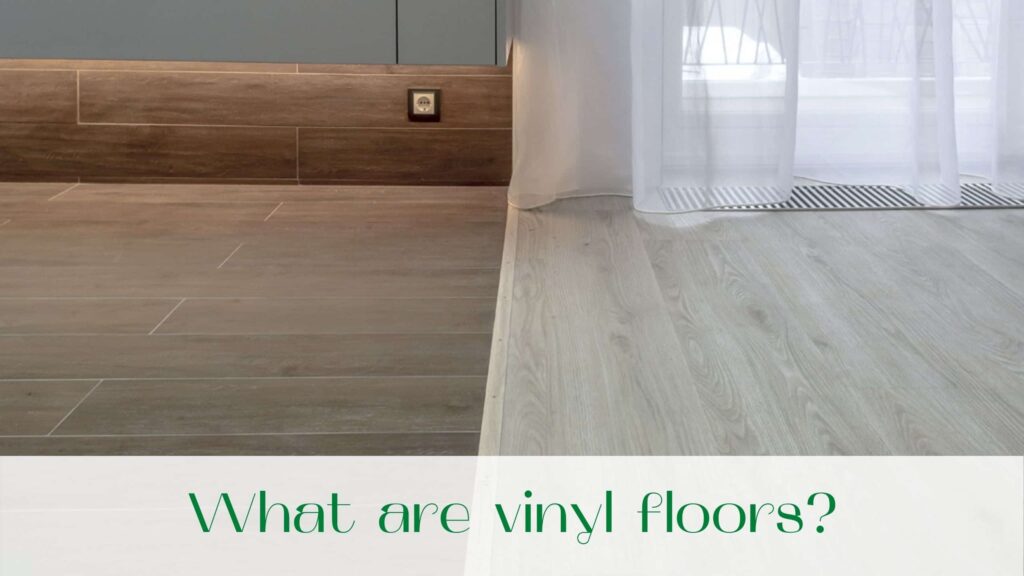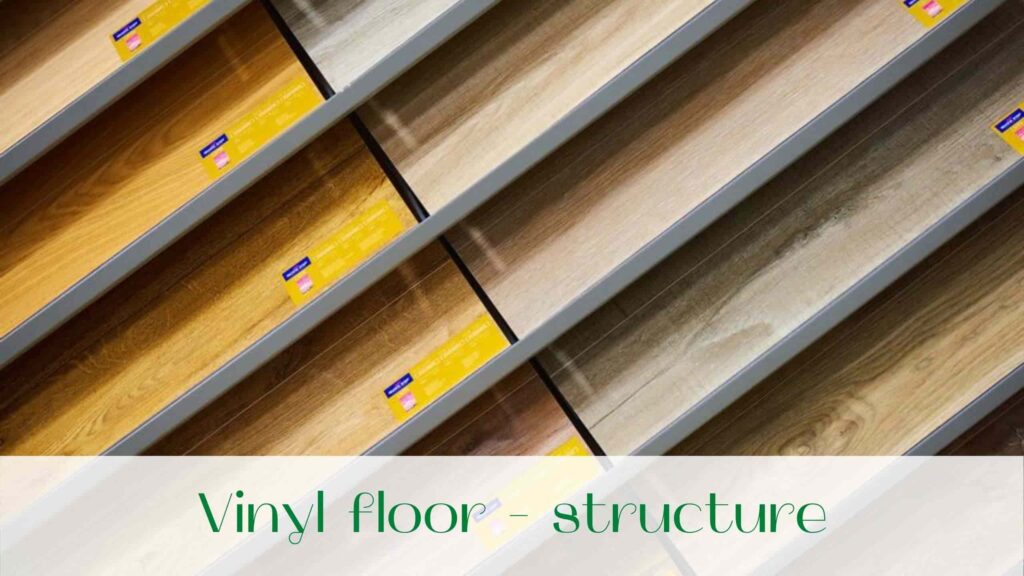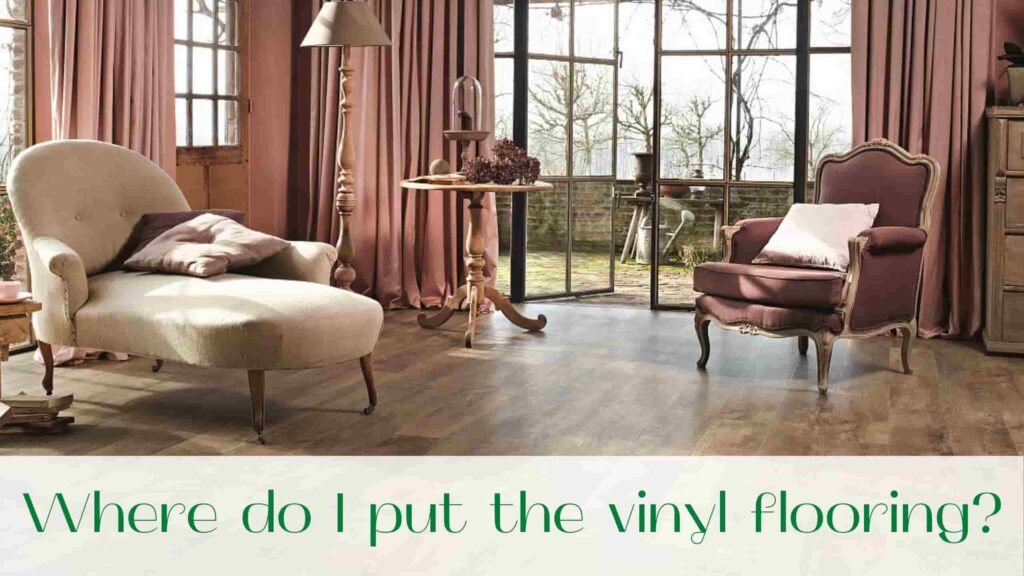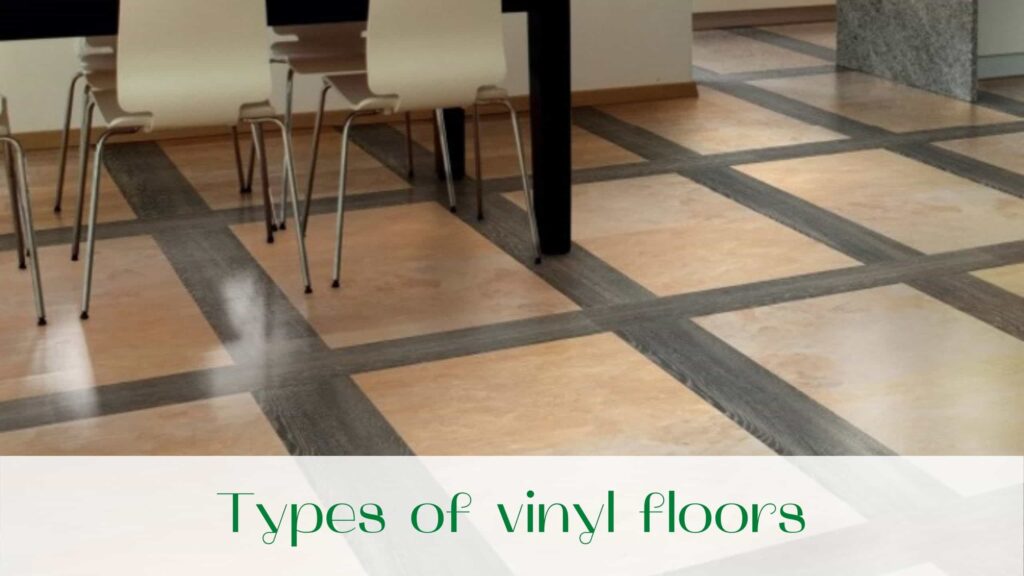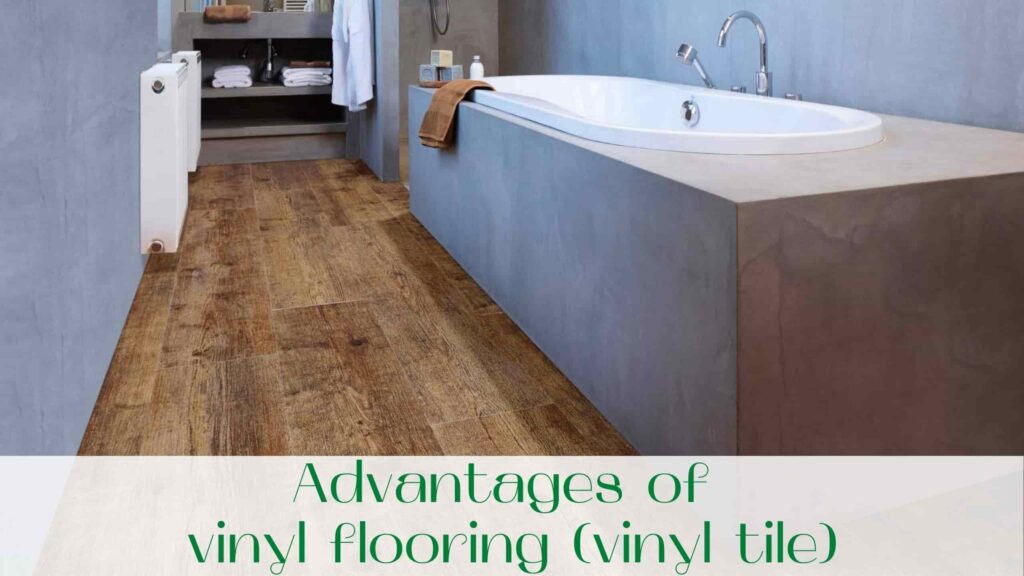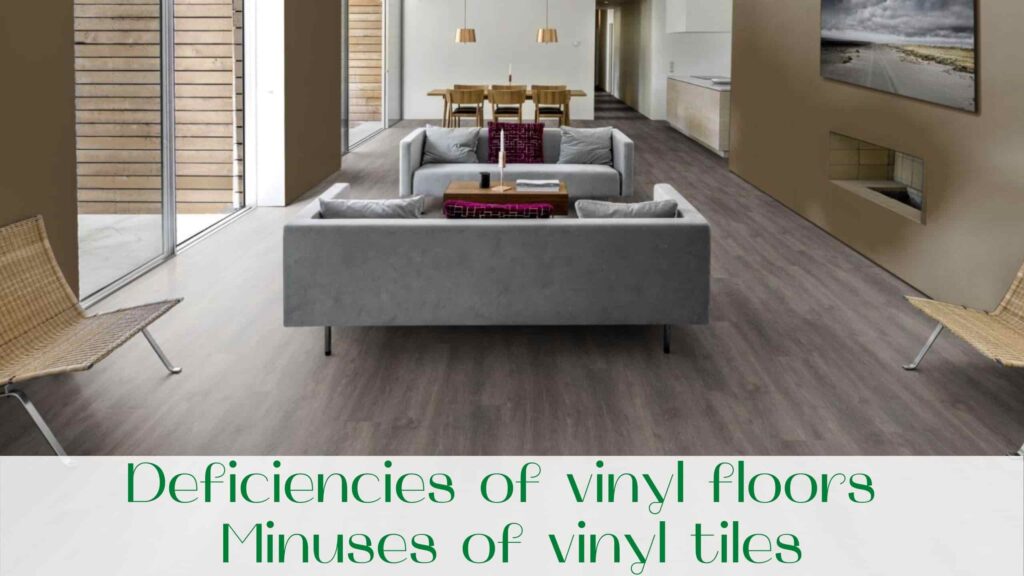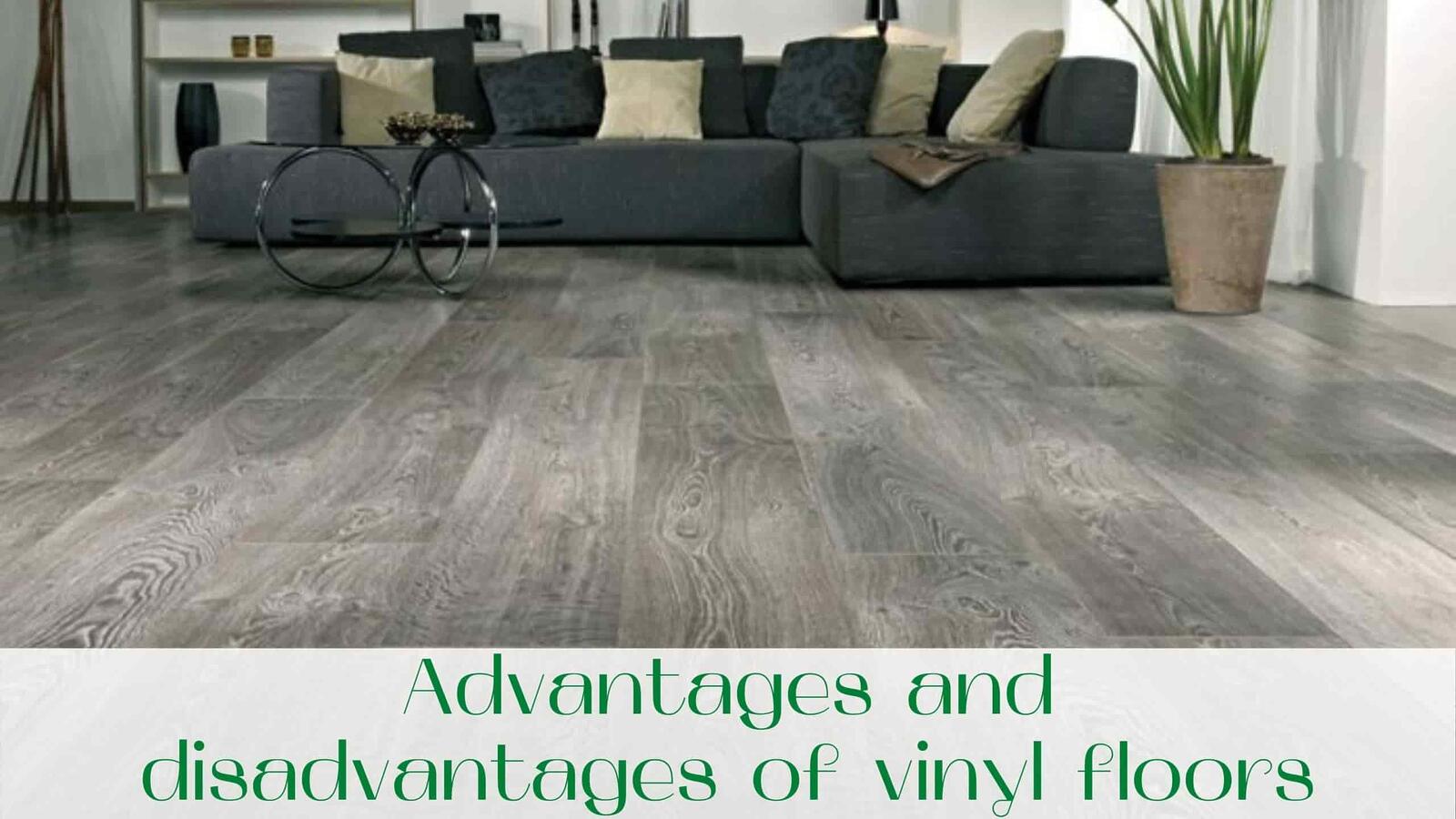
A floor is a surface that is subject to the highest loads. If you are looking for a flooring that combines such properties as aesthetics, durability, wear resistance, moisture resistance, resistance to abrasion and UV rays, ease of maintenance, it is worth paying attention to the vinyl floor. Such a coating can successfully imitate any kind of wood, ceramic tiles, marble chips, natural stone, leather carpets, fabrics and much more.
The floor surface can be glossy or matt, smooth or corrugated. The drawing looks so natural that there is no doubt that you are looking at an elite floor covering.
Table of Contents
What are vinyl floors?
A vinyl floor is a waterproof and durable floor covering based on polyvinyl chloride. Vinyl flooring is also called vinyl tile, vinyl quartz tile, laminate from vinyl. In Europe and America, it is called luxury Vinyl Tiles (LVT for short).
Many people associate the vinyl floor exclusively with outdated PVC tiles, which were laid everywhere in kitchens and public places. Such floor quickly lost its original color, washed and cracked.
With the development of technology, all the shortcomings of vinyl tiles are far behind. The drawbacks were removed thanks to a carefully thought-out construction.
Vinyl floor – structure
The advantages of vinyl floors are due to their design. The structure of vinyl floors consists of several layers:
- The upper layer is made of transparent thermoplastic or film. It is used for protection against external influences, chemical influences, moisture, falling of sharp objects. The thicker it is, the higher the degree of wear resistance. Colorless coating on the surface prevents the formation of stains, protects against the penetration of dirt and dyestuff deep into the vinyl.
- Decorative drawing. It exactly imitates natural materials, determines the color and texture of vinyl tiles. The decoration is applied on a stencil machine. The print is of excellent quality, with a clear and natural pattern of marble or wood. To protect the pattern from sunlight it is covered with varnish or film.
- The floor base is made of durable PVC. It provides the strength of the material. It may include glass fiber or quartz crumb. To give homogeneity to the PVC added plasticizers. Due to the quartz crumb vinyl gets the right level of rigidity and flexibility.
- Balance layer. Strengthens the vinyl, gives it resistance to deformation. The shell consists of reinforced fiberglass.
- The bottom layer is a PVC substrate. It is necessary to stabilize the floor covering. The elasticity of the carpet pad minimizes oscillations and springs under your feet, ensuring quietness and no unpleasant sounds.
All layers are connected to each other by the method of pressing under high pressure and temperature. This makes the coating antibacterial.
Where do I put the vinyl flooring?
Regarding the use of vinyl is divided into three categories:
- Domestic – it is chosen for installation in living rooms. Usually laid in hallways, bathrooms, kitchens, often used on balconies. Its resistance to temperature changes is suitable for warm floors and for installation in unheated rooms. On average, it serves for about 10 years.
- Commercial – designed for use in public areas: cafes, airports, hospitals. It is distinguished by a thickened top layer, so it will serve for at least 15 years.
- Special – used in rooms where the floor is subjected to constant stress, such as dance or sports hall, production workshops. To extend its service life, it is added mineral components that reduce the sliding on the surface. Additives also increase strength, and extend the life of the floor to 25 years.
Types of vinyl floors
Vinyl floor is distinguished by several criteria:
- mounting method;
- degree of glossiness;
- texture;
- shape.
The range of companies presents a huge variety of textures and shades, which is one of the main advantages of vinyl floor in Ontario.
The decorative layer exactly reproduces the color of expensive wood species, which in most cases are not even available in the collections of parquet. Individual models visually repeat the texture of marble, concrete and fabric.
The most popular and spectacular variant is considered to be vinyl with embossing in the register. It means that the pattern of the decorative layer fully coincides with the texture of the upper one. As a result, the maximum imitation of a stone or natural wood is achieved.
As for the texture, vinyl floors are produced:
- smooth;
- embossed;
- rough;
- wicker floors:
The surface can be with different levels of gloss – from matte to glossy.
By method of laying vinyl can be:
- Glue – glued all over the perimeter to the rough floor.
- Locked – are connected to each other on the principle of laminate.
In terms of shape, there are such types of vinyl:
- Tile. Has a different configuration (square, rectangle) and dimensions. It must be fully glued with special formulations. The size of the tile varies depending on the manufacturer.
- Rolls. As well as the tile should be fixed to the base with adhesive. Vinyl in rolls is convenient to use in rooms with large areas. But the disadvantage of roll vinyl floor is that if it is damaged, you will have to change the whole piece of coating to a new one. As a standard, the product is 2 m wide and 25 m long.
- Planka. Often used for floors that mimic wood. Often the products are called vinyl laminate. With respect to the brand of bars are produced in width of 150-190 mm and length up to 1300 mm.
The advantages of a vinyl floor – durability, reliable fixation and aesthetics – depend on the chosen type of coating.
Advantages of vinyl flooring (vinyl tile)
The multi-layer structure provides special functional qualities and advantages of vinyl floors, among which:
- Watertightness. Vinyl does not let water pass, it is not afraid of moisture accumulation. The only thing he is afraid of is water penetration into the joints between the boards. Moisture may cause destruction of the base. It is extremely important to carefully process the seams in rooms where floor-to-water contact is possible.
- Increased durability. The flooring is resistant to external influences – no sharp heels or furniture legs will be left on it. Elasticity provides spring properties of the coating – it is pleasant to walk on it.
- Antistaticity. Vinyl floors do not electrify. In contact with conductive elements, the floor will not create electric shocks. Therefore, vinyl is often chosen for installation in kitchens, balconies and offices.
- Anti-slip qualities. A special plus of vinyl tiles is that it does not slide, even if the floor is wet. This property will be useful in a house with children or elderly people.
- Noiselessness. Unlike solid wood, vinyl perfectly absorbs noises and extraneous sounds. It does not create unpleasant sounds of clutches and creaks when walking.
- Resistant to temperature changes. Not afraid of temperature changes and suitable for stacking in unheated rooms. Vinyl is often used on balconies.
- High thermal insulation. Vinyl acts as a floor heater, keeps heat inside the room. On the reverse side of the floor does not let the cold from the screed in the room. Therefore, the coating can walk barefoot, do not worry about children who play on the floor. Despite the fact that vinyl refers to artificial materials, the surface is warm and soft to the touch.
- It is compatible with a warm floor. Vinyl flooring in Ontario is used for underfloor heating.
- Antibacterial properties. Vinyl surface creates an unfavorable environment for the reproduction of pathogens. Vinyl is ideal for people with bronchial asthma and allergies.
- Easy installation. The coating is easy to fix, does not require special tools for installation.
- Easy maintenance. Contamination is eliminated by any detergents and wet rags. There are no stains or abrasions on the surface.
- Longevity. In terms of wear resistance class, vinyl can last up to 25 years.
- Safety. Vinyl floors from proven brands are made to all international standards. This guarantees complete harmlessness to humans. Such vinyl is made from recycled raw materials and does not release toxins. In confirmation of the safety of the coating manufacturer provides environmental certificates.
But, like any floor covering, vinyl floor has its disadvantages.
Deficiencies of vinyl floors. Minuses of vinyl tiles.
- Impossibility of restoration. Unlike wooden floors, vinyl can not be restored. In case of severe damage or after the expiration of the coating will have to be changed completely.
- Preliminary preparation of the base. For fixation of vinyl, which by its structure is quite thin (about 2-5 mm), the base must be perfectly flat and smooth. Even small particles of debris can cause serious damage to the coating – damage and abrasion.
- Chemical pigmentation. Despite its resistance to stain formation, it may change its color. Such a disadvantage (minus) of the vinyl floor is found in the products of unscrupulous manufacturers. Fakes or low quality coatings will fade or turn yellow over time. In addition, cheap variants of vinyl tiles emit toxins even at room temperature, which leads to diseases of the respiratory tract and eyes.
Shortcomings with vinyl floors can easily be excluded, if you choose products from proven companies. Due to high performance properties, vinyl flooring is more often chosen as an alternative to conventional tiles and relatively expensive wood.
Read our blog!

